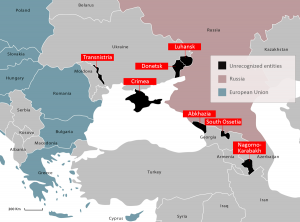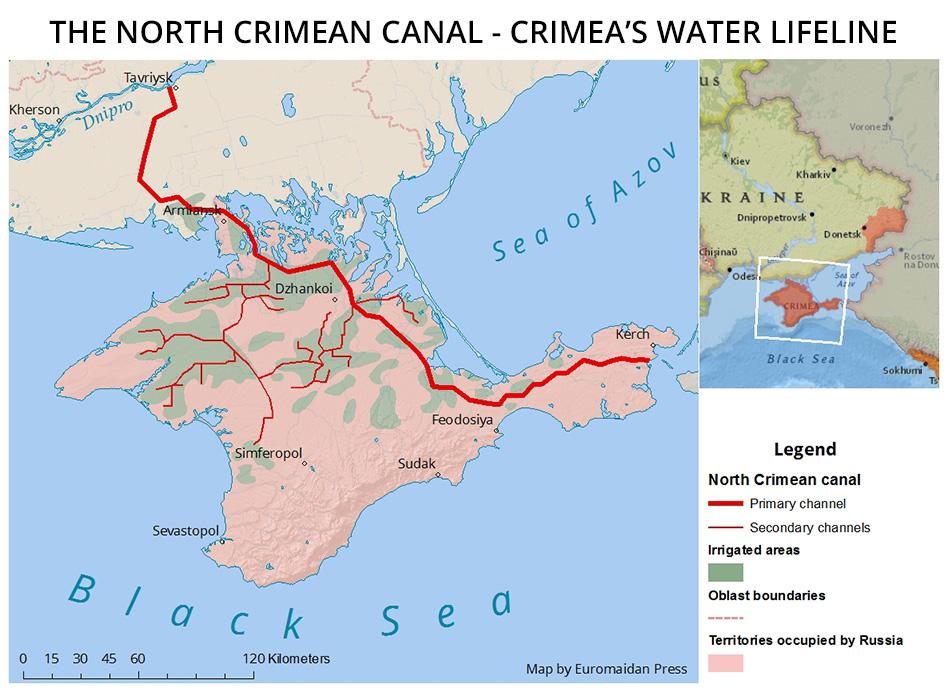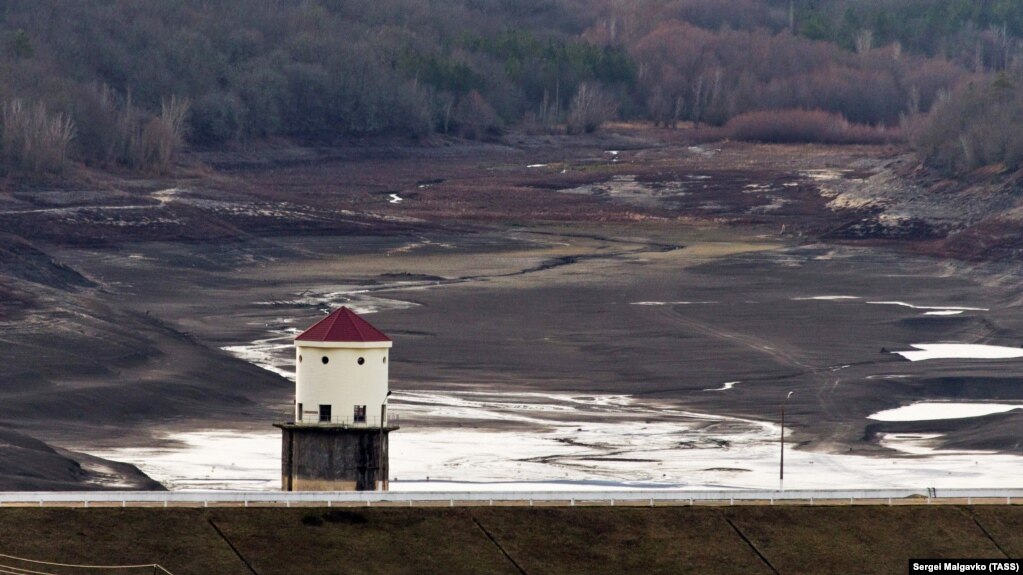There was an old Soviet joke that comes to mind with this story: What would happen to Saudi Arabia if communism triumphed there? Radio Armenia was asked. Radio Armenia replied, “within five years, Riyadh would be importing sand.” In what is no joking matter, the Russian occupation of Ukraine’s Crimea is leaving that peninsula without water.

Precipitation was not enough to refill the reservoirs or raise the water level, and they suggest that the Russian occupation may soon be forced to cut back on its agricultural plans and even introduce water rationing in some locations. All this will almost inevitably lead to a humanitarian crisis later this year.

Moscow clearly hopes its upbeat statements will distract the world’s attention from this reality, he suggests, but in fact, what the Russian government has been doing in recent weeks to develop a special legal regime for the occupied territory only underscores what it publicly denies, that Crimea is part of Ukraine.
Further reading:
- Occupied Crimea not only part of Ukraine suffering from water shortages, Balabukh says
- Putin claims mounting crisis in occupied Crimea can be reversed by fresh water supplies under Azov Sea
- Crimeans have tap water only six hours a day as all Russian attempts to hydrate occupied peninsula fail
- Unprecedented drought hits Russian-occupied Crimea
- Could Ukraine have fought off Crimean occupation? A crucial document you should know
- Russia’s replacement of population in occupied Crimea violates Geneva Convention – UN report
- Critical water shortage in Crimea may prompt new Russian attack against Ukraine
- Russia can’t solve Crimea’s water problem
- The risk of water shortage and implications for Ukraine’s security
- Documentary “Crimea. As it Was” shows the very beginning of Russia’s occupation of the peninsula
- Crimean history. What you always wanted to know, but were afraid to ask





